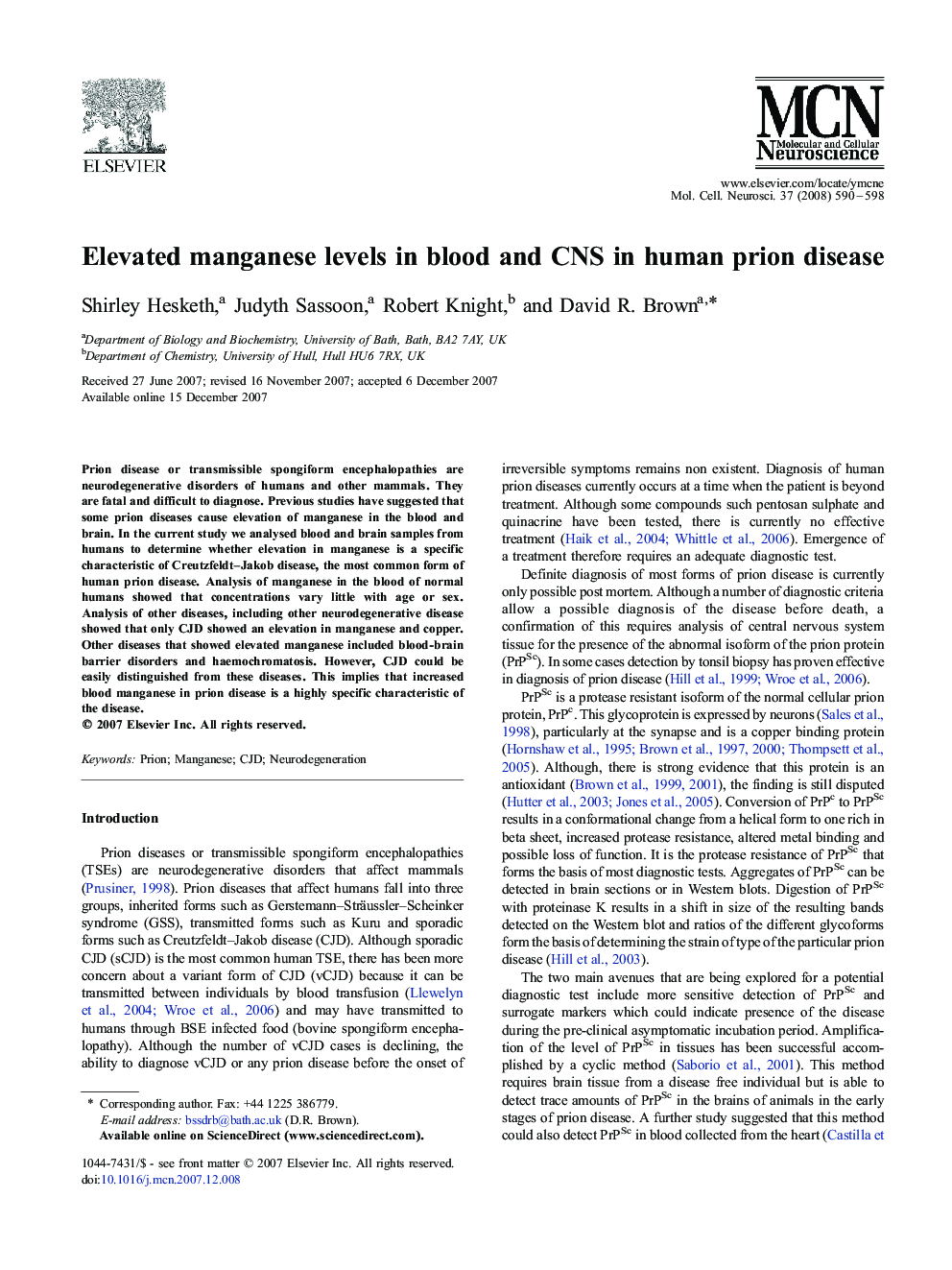| Article ID | Journal | Published Year | Pages | File Type |
|---|---|---|---|---|
| 2199252 | Molecular and Cellular Neuroscience | 2008 | 9 Pages |
Prion disease or transmissible spongiform encephalopathies are neurodegenerative disorders of humans and other mammals. They are fatal and difficult to diagnose. Previous studies have suggested that some prion diseases cause elevation of manganese in the blood and brain. In the current study we analysed blood and brain samples from humans to determine whether elevation in manganese is a specific characteristic of Creutzfeldt–Jakob disease, the most common form of human prion disease. Analysis of manganese in the blood of normal humans showed that concentrations vary little with age or sex. Analysis of other diseases, including other neurodegenerative disease showed that only CJD showed an elevation in manganese and copper. Other diseases that showed elevated manganese included blood-brain barrier disorders and haemochromatosis. However, CJD could be easily distinguished from these diseases. This implies that increased blood manganese in prion disease is a highly specific characteristic of the disease.
